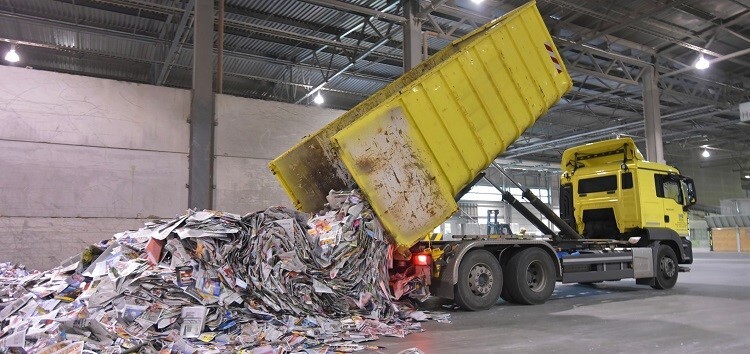
Water Conservation: 7 Simple Ways to Save Water at Home and in Your Business
Water is one of our most precious resources, yet it is often wasted without thought. ...

The European Bank for Reconstruction and Development (EBRD) is extending a €25 million sovereign loan to Moldova to finance critical investments in its solid waste management infrastructure and to address pressing environmental challenges.
The loan is part of a wider financing package, with the European Investment Bank (EIB) providing an additional €25 million sovereign loan as well as investment grants from international donors.
The project is the first large-scale undertaking in the solid waste management sector in Moldova involving multiple regions and an important step towards a sustainable solution for solid waste management services. The EBRD’s investment will support improvements in the solid waste management system of three Waste Management Zones under Moldova’s Solid Waste Management Strategy. It will finance the purchase of waste collection and transfer assets such as waste containers and collection vehicles, as well as construction of solid waste disposal and treatment infrastructure, such as landfills and material sorting and treatment facilities.
The first Waste Management Zone to benefit from the EBRD’s support under the project includes Ungheni, Nisporeni and Calarasi districts, requiring an estimated investment of circa €19.48 million. It will be financed by the first tranche of €6.94 million of the EBRD’s loan, with a similar amount provided by the EIB. The Eastern Europe Energy Efficiency and Environment Partnership (E5P), to which the European Union (EU) is the largest donor, will also provide an investment grant of up to €5.6 million for its rehabilitation. The project also benefits from technical cooperation support funded by Sweden.
The project enables the expansion, regionalization, and creation of a consolidated regional solid waste management system in the participating zones. It is expected to serve as a blueprint for a sustainable solid waste management system across the country.
The EBRD’s investment will enable the government of Moldova to deliver an improved and more efficient municipal waste collection, covering not only urban centers, but rural areas as well.
Well-functioning municipal infrastructure including solid waste management plays a key role in protecting human health and safeguarding the environment. It is critical for building sustainable and liveable cities, and for the achievement of the United Nations Sustainable Development Goals (SDGs).
The construction of a regional sanitary landfill in accordance with EU standards, the closure of uncompliant landfills and many smaller unauthorized dumpsites will reduce illegal dumping, while investments in source separated recyclables, green waste and mixed waste treatment facilities will increase recycling rates and provide environmentally safe disposal.
It will also significantly reduce carbon dioxide and methane emissions associated with waste disposal, thereby contributing to Moldova’s decarbonization efforts in line with its undertakings under the Paris Agreement on limiting climate change.
اترك تعليقا